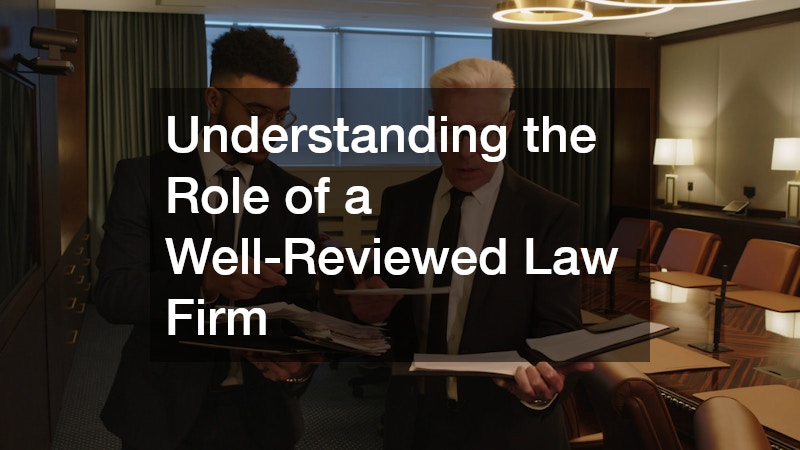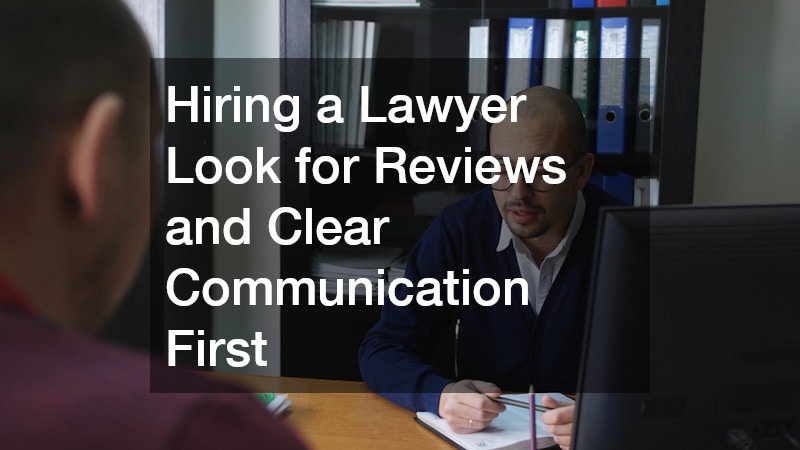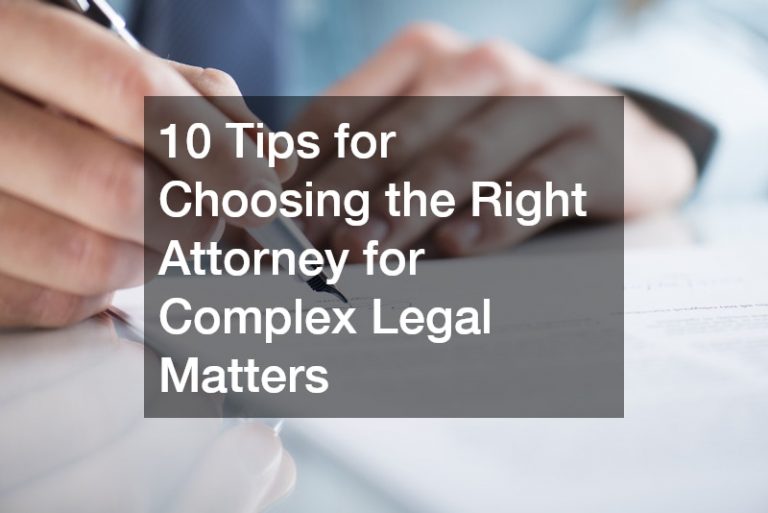- Client reviews are critical for assessing a law firm’s reputation.
Verified client feedback helps you gauge a firm’s trustworthiness, legal success, and communication quality before making contact. - Clear and consistent communication builds trust.
Law firms that promptly return calls, explain legal processes clearly, and offer transparent billing are far more likely to deliver a positive experience. - A well-reviewed law firm often reflects better case outcomes and client satisfaction.
Look for consistent positive feedback across platforms like Google, Avvo, Yelp, and legal-specific directories like Justia or Martindale-Hubbell. - Red flags in reviews shouldn’t be ignored.
Complaints about lack of updates, rude staff, or surprise fees may indicate poor communication or client service — avoid firms with consistent issues. - Communication should be part of your initial consultation.
Ask how the lawyer will update you, who your main point of contact will be, and what to expect in terms of response time and clarity. - Don’t rely on reviews alone — verify credentials and meet in person.
Combine online reputation with a face-to-face consultation to judge professionalism, honesty, and legal compatibility.
Introduction: Why Communication and Reviews Matter in Legal Representation
When it comes to hiring a lawyer, it’s not just about credentials and courtroom victories. What often makes or breaks a client’s experience is the lawyer’s communication style and their reputation among past clients. Choosing a well-reviewed law firm with good communication can make the difference between a stressful legal journey and one where you feel supported, informed, and empowered. Legal matters—whether related to personal injury, family disputes, or business contracts—require trust. That trust is built on consistent communication and transparency.
Unfortunately, many people still choose lawyers based solely on proximity or cost. They neglect to research how responsive the firm is or what past clients say about their experience. In this guide, we’ll walk through the key reasons why communication and client reviews should top your checklist—and how to identify firms that excel in both areas.
1. Understanding the Role of a Well-Reviewed Law Firm

A well-reviewed law firm typically refers to one that consistently receives positive feedback on platforms like Google, Avvo, Yelp, and legal directories. These reviews aren’t just vanity scores—they provide real insights into how the firm operates, treats clients, handles cases, and communicates during stressful situations.
Why reviews matter:
- They reflect client satisfaction based on real experiences.
- They highlight strengths such as timely updates, professionalism, and negotiation skills.
- Negative reviews may uncover patterns like poor responsiveness or unclear billing practices.
Beyond public reviews, pay attention to testimonials on the firm’s own website, professional recognitions, and even how attorneys interact on platforms like LinkedIn. These all contribute to a law firm’s online reputation.
To assess a well-reviewed law firm:
- Read reviews across multiple platforms for consistency.
- Look for specific mentions of attorney responsiveness or client support.
- Beware of firms with only glowing five-star reviews—these can be suspicious or filtered.
2. Why Clear Communication Is a Legal Game-Changer

Legal communication is more than just answering the phone or replying to emails. It includes explaining legal jargon, setting realistic expectations, and keeping clients updated on case progress. A lawyer with strong communication skills is your advocate, interpreter, and strategist.
Consequences of poor communication:
- Missed deadlines or hearings.
- Confusion around legal rights and options.
- Anxiety from being left in the dark about your own case.
On the other hand, a communicative legal team ensures that:
- You receive timely updates on any progress or setbacks.
- Documents and filings are explained clearly.
- You’re informed about your responsibilities, court appearances, and deadlines.
Ask these questions before hiring:
- “How often will I get updates?”
- “Who will be my point of contact—an attorney or a paralegal?”
- “What’s your typical response time?”
Choosing a law firm with a track record of effective client communication leads to better legal outcomes, fewer misunderstandings, and higher peace of mind.
3. Signs You’re Dealing with a Law Firm That Prioritizes Clients
Law firms that are well-reviewed and prioritize client experience often demonstrate this in their processes. From your first contact, their professionalism should be evident. If you call or email and get a prompt, clear response—that’s a good sign.
Indicators of a client-focused law firm:
- Clear contracts and billing structures.
- Free initial consultations that aren’t rushed.
- A designated team member assigned to your case.
- Personalized advice, not just generic legal speak.
Some top-rated firms also offer:
- Client portals for document tracking and status updates.
- Bilingual communication for diverse clients.
- Proactive follow-ups to ensure you understand each stage.
Firms that lack these standards often have reviews mentioning unreturned calls or confusion around case updates—red flags you should take seriously.
4. How to Evaluate Online Reviews of Law Firms
Online reviews can be powerful—but only if you know how to read them critically. Not every 5-star review is genuine, and not every 1-star review is fair. Your goal should be to identify patterns in both praise and complaints.
Look for:
- Volume: A firm with hundreds of reviews is likely more established than one with only 2-3.
- Recency: Older reviews might not reflect current performance or personnel.
- Specificity: Look for reviews that mention communication, legal strategy, and case outcomes.
Common review platforms:
- Google Reviews: Most accessible, shows how well the firm manages its client base.
- Avvo: Specializes in attorney ratings, peer endorsements, and credentials.
- Yelp: Good for understanding client service, appointment handling, and responsiveness.
- Better Business Bureau (BBB): Useful for understanding complaints and dispute resolution.
If possible, go beyond public reviews by asking for referrals or checking a lawyer’s state bar standing.
5. Questions to Ask Before Hiring a Law Firm
Even if a firm has glowing reviews and a responsive team, your needs may be unique. Asking the right questions early on helps you understand how they’ll handle your specific case.
Must-ask questions:
- How do you typically communicate—email, calls, or text?
- What is your average turnaround time for responses?
- Who will I be communicating with most often?
- Have you handled cases like mine before?
- What’s your fee structure, and are there any hidden costs?
You can also inquire about:
- Client feedback processes (do they ask for feedback post-case?)
- Success rate with similar cases
- Availability for urgent matters (some cases move quickly)
An honest, transparent law firm will be happy to answer all your questions clearly and without pressure.
6. Red Flags That Indicate Poor Communication or Misleading Reviews
No matter how positive the reviews, some law firms might mask poor communication behind good marketing. Learning to spot red flags will save you time, money, and stress.
Watch for:
- Inconsistent communication or delays in returning calls.
- Overpromising case outcomes.
- Vague answers to your direct questions.
- Negative reviews citing the same issue repeatedly.
- Too many perfect reviews with no detail—could be fake or paid.
Also, trust your gut. If your initial experience with the firm is confusing or cold, it’s unlikely things will improve once you sign a contract.
7. Tools and Resources to Help Choose the Right Law Firm
Several online tools can simplify the process of evaluating and choosing the right legal help. Pair them with your personal criteria for choosing a well-reviewed law firm with strong communication.
Helpful resources:
- Avvo.com – Detailed lawyer profiles, reviews, and disciplinary records.
- Justia.com – Lawyer directories, articles, and Q&A with attorneys.
- Lawyers.com – Search by specialty and location with verified reviews.
- State Bar Websites – See if the attorney is licensed and in good standing.
Also, use LinkedIn to learn more about the firm’s team and their published work or legal commentary.
Final Thoughts: Prioritizing Reviews and Communication for Legal Success
A good lawyer is more than just a legal technician—they’re your advocate, support system, and interpreter in a confusing legal landscape. Choosing a well-reviewed law firm with good communication ensures your voice is heard, your rights protected, and your case handled with care.
Start your search with platforms like Google Reviews, Avvo, and the Better Business Bureau. Pay close attention to how the firm engages during your initial inquiries. If their team takes time to understand your situation, explains things clearly, and comes highly recommended—chances are, you’re in good hands.
Top Takeaways
- Strong client communication leads to better legal outcomes and less stress.
- Online reviews reveal patterns in professionalism and responsiveness.
- Ask the right questions to test transparency before hiring.
- Use multiple review sites and legal directories for research.
- Trust law firms that offer clear updates, realistic timelines, and honest feedback.
FAQs
Q: Why is communication so important in choosing a lawyer?
A: Legal matters are often time-sensitive and complex. Clear communication helps you stay informed, meet deadlines, and make the best decisions for your case.
Q: Where can I find reviews of a law firm?
A: Google, Avvo, Yelp, BBB, and Lawyers.com offer verified reviews and feedback from real clients.
Q: Should I avoid a law firm with negative reviews?
A: Not necessarily. Look at the overall pattern. A few bad reviews in a sea of positives aren’t a dealbreaker unless they all mention the same recurring issue.
Q: How can I test a law firm’s communication before hiring?
A: Reach out with a simple question about your case. Take note of how quickly they respond, how clearly they answer, and whether they follow up.







